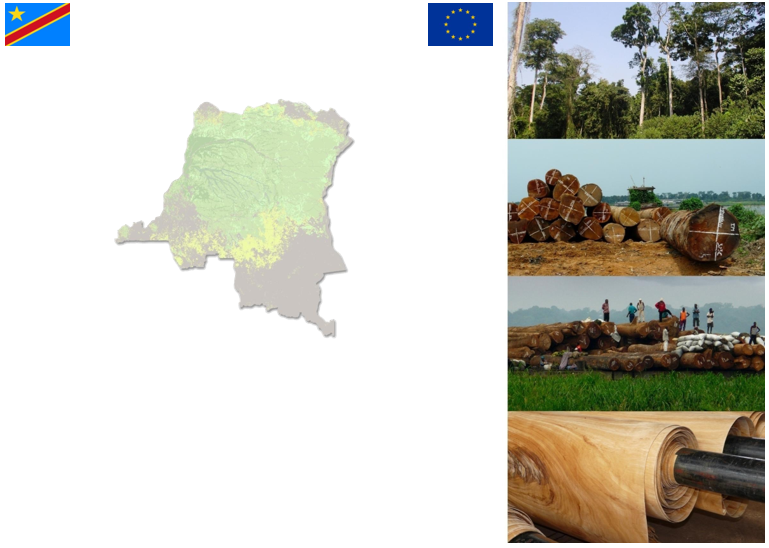

30.01.2020
Since October 2010, the Democratic Republic of Congo (DRC) has been negotiating a Voluntary Partnership Agreement with the European Union.
At the signing of the common declaration opening the negotiations (21 October 2010), the Democratic Republic of Congo insisted on the need to take into account the artisanal exploitation of timber given its scale in the DRC.
In November 2010, a multi-stakeholder commission composed of the public administration, civil society and the private forestry sector, responsible for preparing the elements of the negotiations of the above-mentioned Agreement and its annexes, was set up.

This Technical Commission for Negotiations (CTN) has set about producing different grids for defining the legality of timber in the DRC. All these different grids are accompanied by the related legality verification procedures (PVL). The CTN has also produced the documents containing the guidelines on access to information and transparency in the forest sector as well as the list of timber and timber products covered by the FLEGT authorization regime. This is part of the parties’ commitment to ensure transparency in actions carried out under the VPA.
In order to verify the applicability and relevance of the indicators and means of verification proposed by the Technical Commission for Negotiations, CTN deemed it useful to test the legality grids for industrial and artisanal logging in the field. These tests took place in September and December 2018. Their results made it possible to review and modify some elements of these different grids, which were finally presented to stakeholders in June 2019.
Until the tools have been fully finalized with a view to continuing the process and their presentation to the European Union by the Government of the Republic, CTN considered it useful to offer timber operators in the DRC a vademecum drawn up on the basis of the legality grids.
The purpose of this compendium is to provide operators with a guide containing key information relating to legality documents.
In this context, a workshop was organized in November 2019. The three vade-mecums proposed by CTN were presented to the forest operators/exploiters in the presence of other stakeholders. These are the vade-mecums: (i) the legality grid for industrial logging, (ii) artisanal logging in the first category, and (iii) industrial logging in the second category. These vademecums contain each principle of the legality grid and only include the verifiers according to the segments. The first information likely to help operators in terms of legality documents for the timber trade in the DRC can thus be gathered at this level. These vademecums will be put online soon. To be continued.